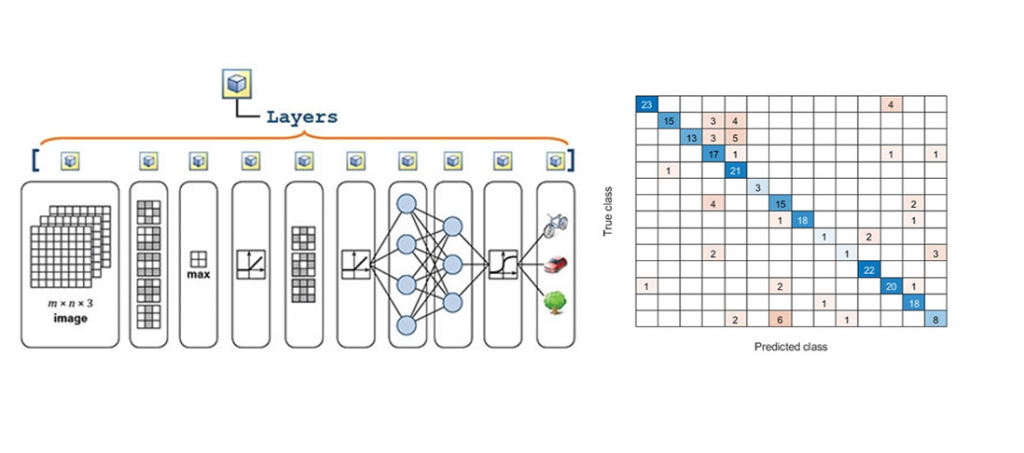Developed in Collaboration with NVIDIA Deep Learning Institute
MathWorks is pleased to announce a new course that has been developed in collaboration with
NVIDIA Deep Learning Institute (DLI).


Since MATLAB began supporting Deep Learning in 2017, we have been promoting the exclusive use of NVIDIA GPUs. (
My first GPU was an NVIDIA Tesla K40, which I still have in my office today – mainly for sentimental reasons). MATLAB automatically finds and uses available GPUs for deep learning applications, so you don’t have to explicitly program the GPU to experience acceleration in training and inference.
And with the MATLAB container for deep learning now available from the NVIDIA GPU Cloud registry (
NGC), the support for NVIDIA GPUs continues. Suffice to say, MATLAB is a great option for engineers and scientists that want GPU-acceleration within a familiar high-productivity environment.
What’s in the training?
I went directly to the source to understand the why and how behind the training. One of the authors of the training course, Renee Bach @MathWorks answered a few of my questions.
Q: What can I expect to learn after taking this course? This isn’t just a “what is deep learning” course, right?
A: This is more than an introduction to deep learning. The agenda includes:
- Importing image and sequence data
- Using convolutional neural networks for image classification, regression, and other image applications
- Using long short-term memory networks for sequence classification and forecasting
- Modifying common network architectures to solve custom problems
- Improving the performance of a network by modifying training options
|
Q: How much time does it take? Who teaches the course?
| A: This two-day course provides a comprehensive introduction to practical deep learning using MATLAB, it’s an instructor-led training and uses NVIDIA GPUs to accelerate network training.
|
Q: Do I need a GPU to take the course?
| A: No! Both the MATLAB instructor-led class and all NVIDIA DLI training courses use cloud-based GPUs, so there is no need for you to have your own GPU. A friendly reminder that if you're ever without GPU resources, you can always rent them using the MATLAB NGC container. Here is a LINK to the MATLAB NGC container and a video tutorial on getting started.
Here’s what Craig Santos, director of MathWorks Training Services, had to say about the course:
|
“This Deep Learning with MATLAB course enables engineers, scientists, and researchers to quickly learn and apply deep learning techniques to their applications without having to be deep learning experts. The course is a 2-day instructor-led class where students, upon completion, will be ready to start applying deep learning techniques using MATLAB and NVIDIA GPUs to common applications such as image classification, autonomous systems, voice recognition, and object recognition.”
Q: How can this help open source developers?
| A: This is an important thing to note: if you are using open source deep learning tools, you may still find value in using MATLAB in conjunction with open source.
MATLAB has sophisticated data labeling tools (like image labeler for pixel and region labeling, and audio labeler for signal labeling), functionality for visualizing networks (shown below), and tools for automatic code generation of optimized CUDA code.
In addition, a MATLAB container from NGC, a hub for GPU-optimized AI and HPC software, provides a complete deep learning workflow that uses NVIDIA GPUs to accelerate neural network training to scale up performance across nodes.
It may be that these tools can help augment your open source deep learning with data preprocessing and code generation to complete the workflow. |

Deep Network Designer provides interactivity and debugging within your new or prebuilt deep learning models
You can check out other industry-specific content and advanced CUDA programming courses in DLI today:
https://www.nvidia.com/en-us/deep-learning-ai/education/












Comments
To leave a comment, please click here to sign in to your MathWorks Account or create a new one.